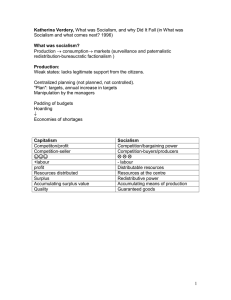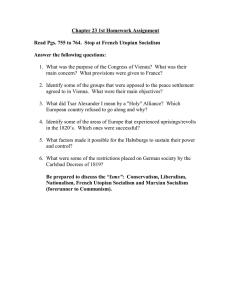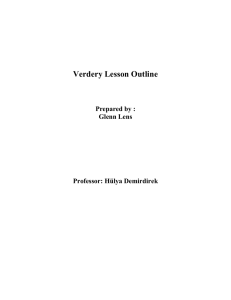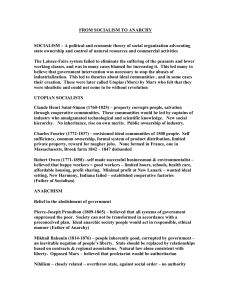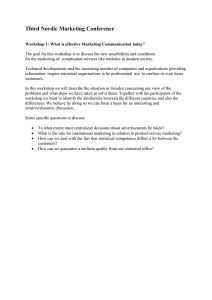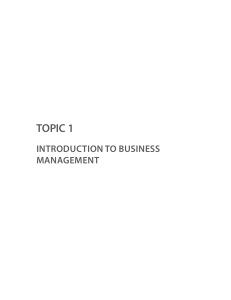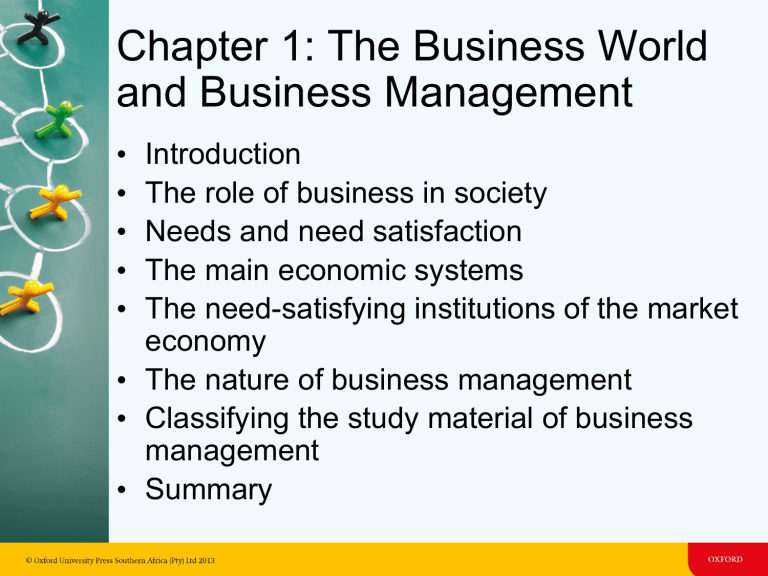
Chapter 1: The Business World and Business Management • • • • • Introduction The role of business in society Needs and need satisfaction The main economic systems The need-satisfying institutions of the market economy • The nature of business management • Classifying the study material of business management • Summary Introduction • Business world can be seen as a complex system • Involves transforming resources into products and services. • Products and Services must meet the needs of people in exchange for profit The role of business in society • This description of a business emphasises four different elements: o o o o Business involves human activities Business involves production Business involves exchange Business involves profit. The role of business in society (continued) • Business world is under pressure to reconsider role in the following: o o o o o Social responsibility Employment equity Business ethics Consumerism Environmental sustainability Needs and need satisfaction • The multiplicity of human needs o o Humans have a wide range of unlimited physical and psychological needs to satisfy Range from the most basic need for food to the need for self esteem • Society’s limited resources: o o o o Natural resources Human resources Capital Entrepreneurship. The needs and resources of the community The cycle of need-satisfaction The main economic systems • Three main systems can be identified: o o o The market economy The command economy Socialism. The market economy • Free-market economy functions on the following assumptions: o o o o Members of a community may possess assets and earn profits on them The allocation of resources is effected by free markets Members of the community have free choice of products, services, places of residence and careers The state keeps its interference in the system to a minimum. The command economy • Command economy functions on the following assumptions: o o o System of communal ownership in which the individual owns no property, except private domestic assets Choices of products and services are limited to what the state offers State decides what the needs of the community are, how and where the goods will be obtained, and in what quantities they may be used. Socialism • Socialism functions on the following assumptions: o o o Strategic and basic resources should belong to every member of the community Businesses and consumers operate within free markets in which they are at liberty to make decisions without restriction Consumers have greater freedom of choice than those under a command economy. Comparison of main economic systems The need-satisfying institutions of the market economy include: • Business organisations • Government organisations • Non-profit-seeking organisations Products and services offered in the market system The nature of business management • Consider the following: o o o o Economics and business management as related sciences The purpose and task of business management Is business management an independent science? The interfaces between business management and other sciences. Classifying the study material of business management • The functional management areas of a business are: o o o o o o o General management Marketing management Financial management Production and operations management Purchasing management Human resource management Public relations management. Summary • Business organisation's role in society • Social process that transforms a country's means of production • Business as a component of the economic system • Business provides for the needs of the people

